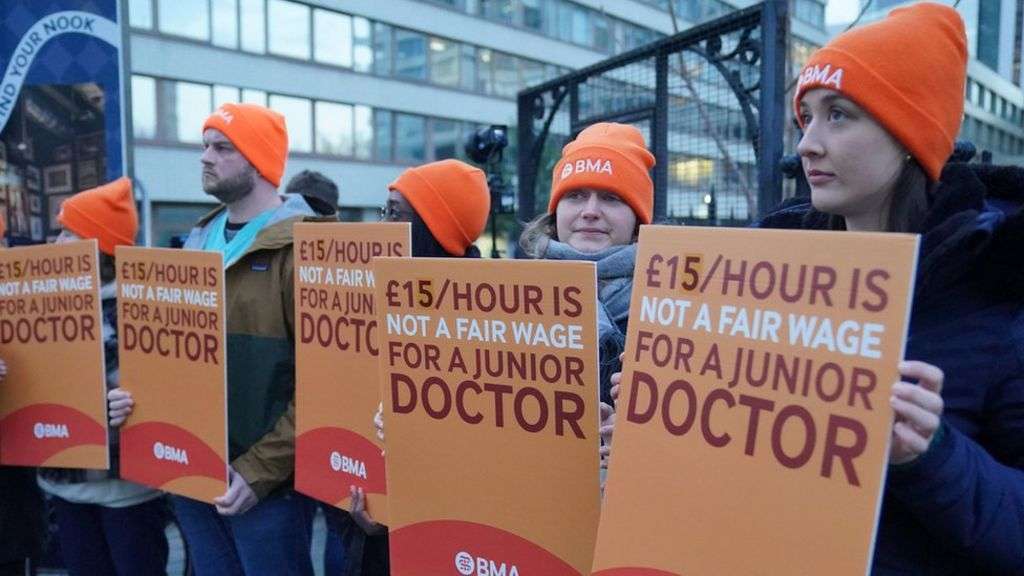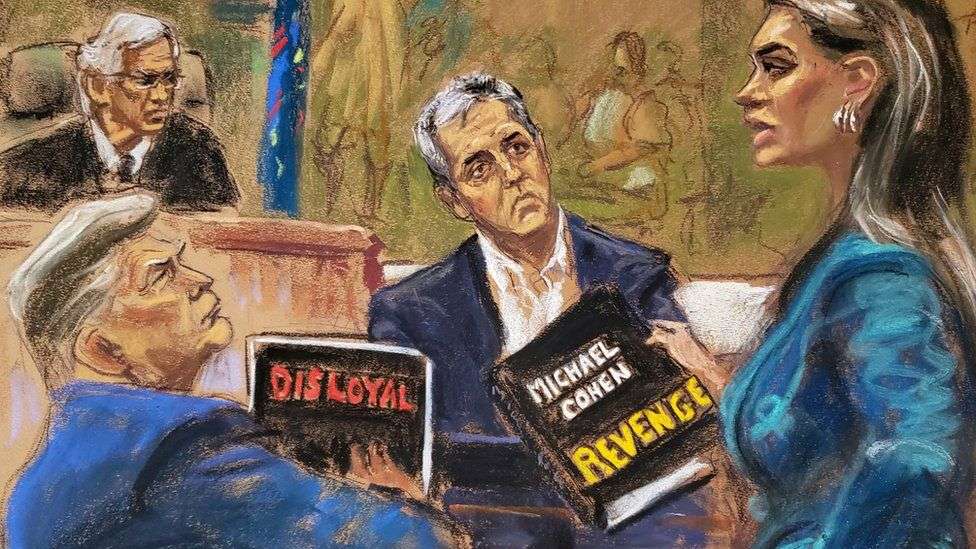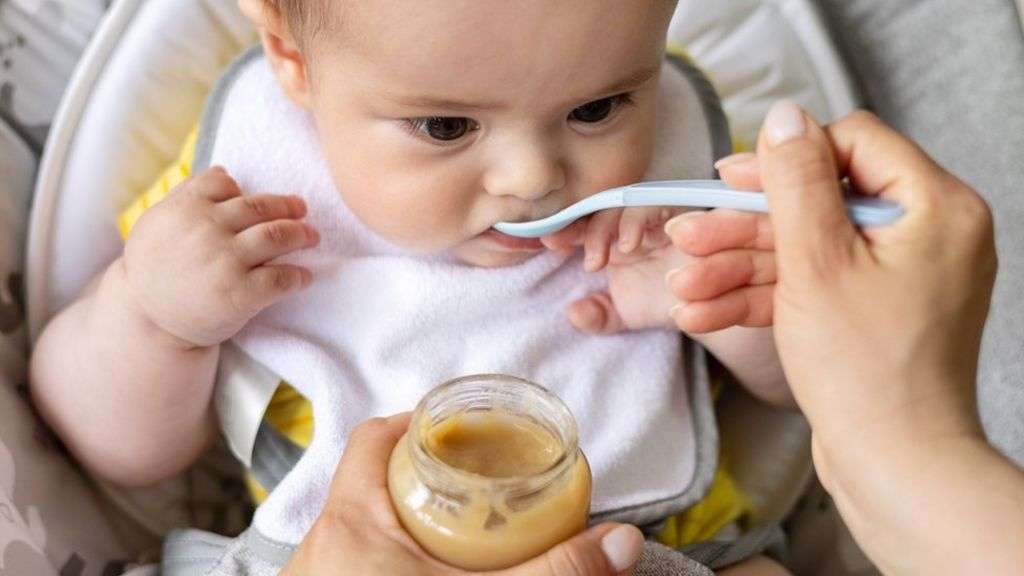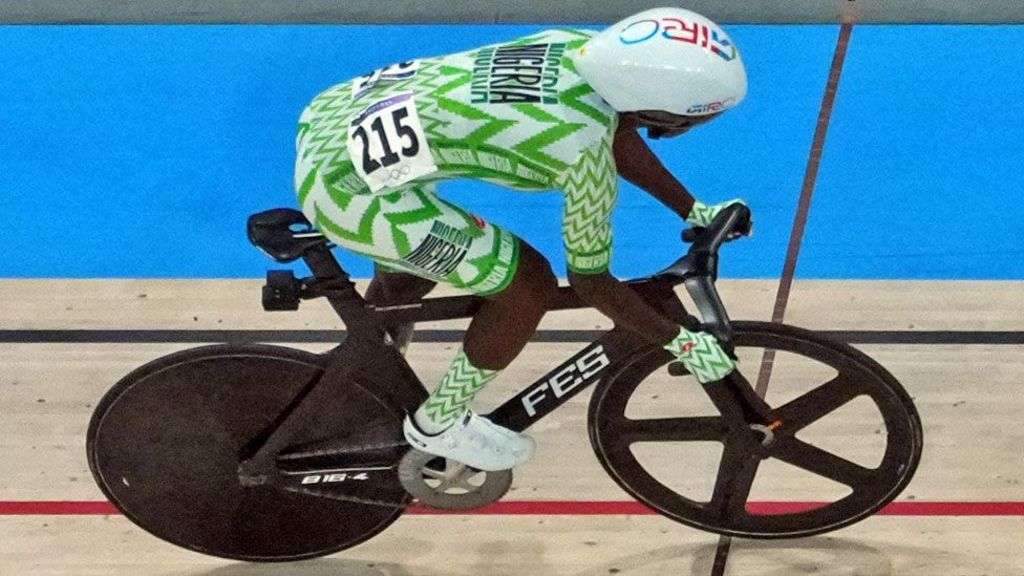Junior doctors in England are to stage a five-day strike in the lead-up to the election in their long-running pay dispute with the government.
British Medical Association (BMA) members will walk out from 07:00 BST on 27 June - a week before election day.
The union said it was taking action as there had been no credible new offer after fresh talks started in mid-May.
But ministers accused the BMA of "cynical" tactics for calling a walkout during the election campaign.
The BMA has asked for a 35% pay rise to make up for what it says is 15 years of below-inflation pay rises.
Junior doctors received a pay rise averaging nearly 9% in the last financial year.
The BMA walked out of talks last year during which an extra 3% pay rise on top was discussed.
This will be the 11th walkout by junior doctors in this dispute after their first strike in March 2023. The last one took place in February.
It will see junior doctors walk out of all services, with senior doctors having to be drafted in to provide cover.
That will cause huge disruption to elective services, such as routine operations, days before the general election.
Junior doctors represent nearly half the doctor workforce in the NHS - with two-thirds members of the BMA.
BMA junior doctors committee co-chairs Dr Robert Laurenson and Dr Vivek Trivedi said: "We made clear to the government that we would strike unless discussions ended in a credible pay offer.
"For more than 18 months we have been asking Rishi Sunak to put forward proposals to restore the pay junior doctors have lost over the past 15 years."
They added: "When we entered mediation with government this month we did so under the impression that we had a functioning government that would soon be making an offer. Clearly no offer is now forthcoming. Junior doctors are fed up and out of patience.
"Even at this late stage, Mr Sunak has the opportunity to show that he cares about the NHS and its workers."
Health Secretary Victoria Atkins accused the BMA of a "highly cynical tactic" by calling the strike during the election campaign.
"I am in politics to help patients not trade unions. The Conservative government has taken tough decisions to keep public spending down to bear down on inflation, which is now back to normal."
Strike action by junior doctors has also been taking place in Northern Ireland with another walkout planned in early June.
Walkouts in Wales are on hold as talks take place.
Junior doctors have not been on strike in Scotland after they accepted a pay offer from the government there.
Saffron Cordery, deputy chief executive at NHS Providers, which represents hospitals, said the news of fresh strike action was a "worrying escalation" of the dispute.
"This strike will inevitably hit patients hard," she said.
"As always, trust leaders and their teams will do everything they can to protect patient safety.
"They will spend countless hours preparing for the walkout, which includes cancelling and rescheduling appointments. This is time they would prefer to spend improving patient care and tackling sky-high waiting lists."
Nearly 1.5 million appointments and operations have been cancelled because of strike action in the NHS in England at an estimated cost of £3bn.
Consultants, nurses and midwives alongside other non-medical staff have all accepted pay offers over the past 12 months in England.








